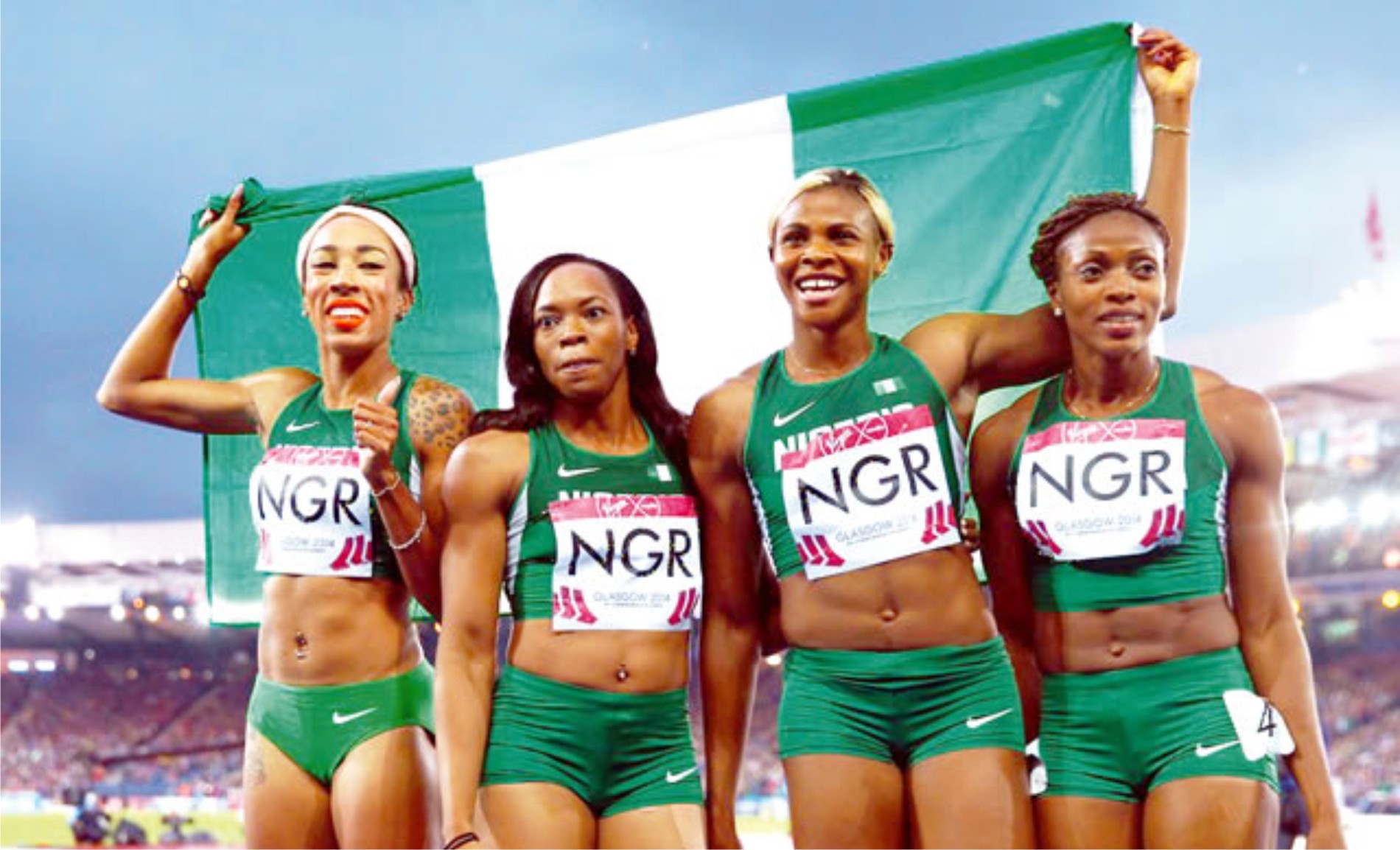Editorial
C’Wealth Games: Bravo Nigeria!

For a long time in recent history, Nigeria’s contingent to a major international sports competition returned in joyous mood, with back- slapping and encomium being poured on athletes and officials alike. In fact, the recently concluded 22nd Commonwealth Games staged in the city of Birmingham, United Kingdom has given the country cause for celebration and commendation, especially at a time Nigerians have little reason to celebrate.
Team Nigeria with their performance at the Games thrust the country into sports spotlight once again after amassing 12 gold, nine silver and 14 bronze to record a total of 35 medals at the 2022 Commonwealth Games in Birmingham. The gold medal haul is the highest by the country at a single Games. This commendable performance ensured that Team Nigeria finished tops among other African countries and seventh overall.
Worthy of note is the fact that Nigerian athletes did not only garner medals and glory for the country, they also etched their names and that of Nigeria in the annal of the Games by breaking and setting records. Tobi Amusan, who carried her record breaking performance from the World Athletics Championship in Eugene to the games ran a new Commonwealth games record of 12.30 seconds in the 100metres hurdles final to win gold, while Ese Brume leapt a record distance of seven metres to win the Long Jump event. Also, the 4×100 metres quartet of Amusan, Favour Ofili, Rosemary Chukwuma and Grace Nwokocha set a new African record after finishing in 42.10 seconds. Lifters, Adijat Olarinoye, Rafiatu Lawal and Alice Oluwafemilayo all set Games records in their respective categories to add to Nigeria’s gold haul. Other events like Discus Throwing, Wrestling, Para-athletics and Power lifting also contributed to the medal haul.
We are thrilled that for the first time, the usual negative stories, infighting, protests over athletes welfare, accusations and counter-accusations that usually trail Team Nigeria at such sports meets were non-existent. The competition, as far as the country’s contingent was concerned, was held in a conducive atmosphere devoid of rancour and suspicion of any kind. Perhaps, that was why the team, having been effectively motivated, focused only on the task of performing well and winning laurels for the country.
We believe that the good result obtained at Birmingham was not accidental. Truly, if the right energy and preparations are channeled towards tapping the potential of the talents that abound in the country, Nigeria would certainly occupy an enviable position not only in African sports arena, but the world as a whole.
That is why we think the Minister of Sports and Youth Development, Sunday Dare should be commended for the role he played in collaboration with the Nigeria Olympic Committee, NOC, in ensuring that most of the country’s elite athletes received the support and incentive to prepare, test run themselves and be in the shape to do the nation proud at the competitions. The Minister has indeed demonstrated pragmatic leadership in improving the fortunes of athletes and sports in the country. It is on record that his Adopt-an-Athlete initiative, which saw many Nigerian sportsmen and women, especially elite athletes being sponsored by individuals, private organisations, state governments to the Tokyo 2020 Olympics, renovation of the MKO Abiola National Stadium, Abuja and rehabilitation of the National Stadium, Surulere, Lagos in partnership with the Dangote Group and Chief Kessington Adebutu, played important roles in pushing the athletes to deliver.
Only last week, it was reported that the NOC has named four athletes as the latest recipients of the ANOCA Athlete Support Programme for Paris 2024 Olympics. That, we believe is the way to go if the achievement at the Birmingham Games is to be sustained. In fact, the performance is now a challenge to the athletes and sports administrators in the country. Birmingham 2022 performance should now be a marker for measuring the success or otherwise of subsequent international sports competitions Nigeria will be participating in.
It is, however, important to note that the Birmingham 2022 success story hinged on the outstanding performance of Nigerian women. All the gold medals and records were hauled by the female athletes with their male counterparts missing in the honours roll call. We think that the experience should serve as a wake-up call for the male athletes. They must be challenged by the development and stand to be counted. While, they may not be in direct competition with their women folks, the gauntlet has been thrown at them.
Tobi Amusan, Ese Brume and indeed all the medalists at the 2022 Commonwealth Games and those that pulled the strings behind the scene all deserve adulation and commendation. However, all hands must be on deck to ensure that the days of playing second fiddle by Nigeria at sports meets belong to the past. Nigeria boasts the human and material resources to be a big player and sustain her position among top players in African and world sports.
Editorial
As NDG Ends Season 2

Editorial
Beginning A New Dawn At RSNC

Editorial
Sustaining OBALGA’s Ban On Street Trading

-

 News2 days ago
News2 days agoAmend Constitution To Accommodate State Police, Tinubu Tells Senators
-

 Politics2 days ago
Politics2 days agoSenate Urges Tinubu To Sack CAC Boss
-

 News2 days ago
News2 days agoDisu Takes Over As New IGP …Declares Total War On Corruption, Impunity
-
Business2 days ago
President Tinubu Extends Raw Shea Nuts Export Ban To 2027
-
Business2 days ago
Crisis Response: EU-project Delivers New Vet. Clinic To Katsina Govt.
-
Business2 days ago
President Tinubu Approves Extension Ban On Raw Shea Nut Export
-
Rivers2 days ago
Etche Clan Urges Govt On Chieftaincy Recognition
-
Business2 days ago
Fidelity Bank To Empower Women With Sustainable Entrepreneurship Skills, HAP2.0

